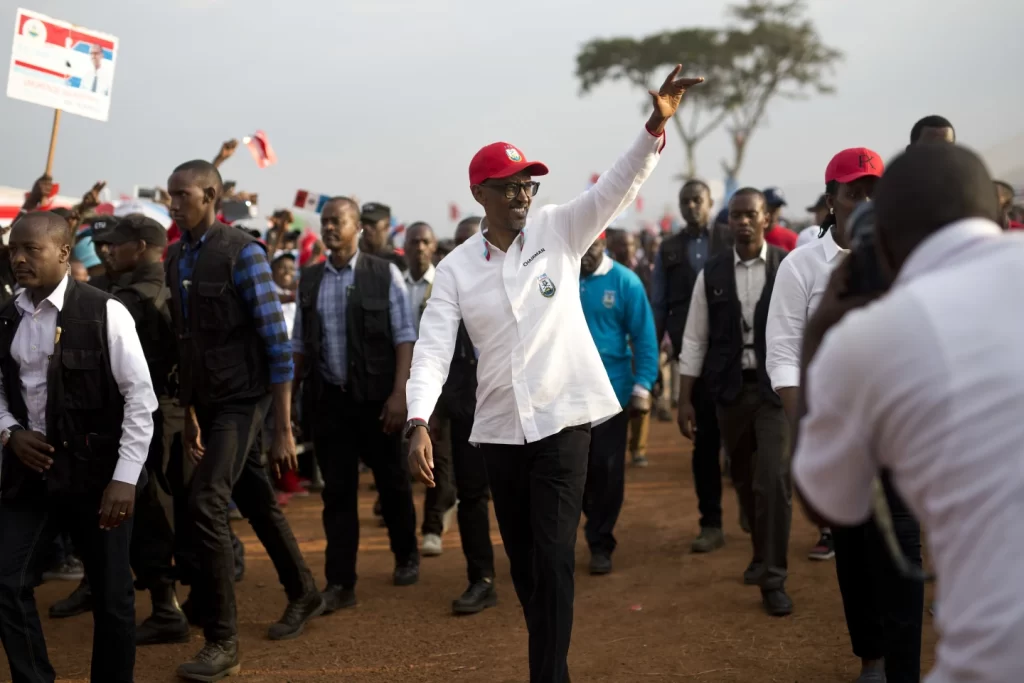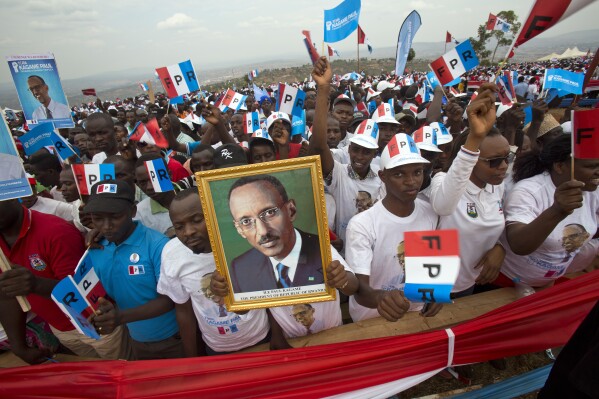Rwandans are heading to the polls on Monday in an election that is widely expected to extend the long-standing rule of President Paul Kagame. Running virtually unopposed, Kagame is poised to secure a fourth term, marking nearly three decades in power in the eastern African nation.

Campaign and Public Support
Kagame’s campaign has drawn large crowds of enthusiastic supporters, underscoring the anticipated inevitability of his victory. His main challengers, Frank Habineza of the Democratic Green Party of Rwanda and independent candidate Philippe Mpayimana, have struggled to attract significant public attention to their rallies. This overwhelming support echoes Kagame’s 2017 election, where he garnered nearly 99% of the vote, and similar results are expected this time around, given the absence of serious opposition.
Historical Context and Leadership
Paul Kagame, 66, first rose to power as the leader of the rebel force that ended the Rwandan Genocide in 1994. Serving as Rwanda’s vice president and de facto leader from 1994 to 2000, he became the country’s president in 2000. Over the years, Kagame has been a pivotal figure in Rwanda’s political landscape, transforming the nation but also drawing criticism for his authoritarian style of governance. International observers have often highlighted the lack of political dissent and the challenges faced by opposition parties in the country.

Election Amid Regional Tensions
This election takes place amid heightened tensions in Africa’s Great Lakes region. A violent group of rebels known as M23 is engaged in conflicts in the eastern Congo, fighting Congolese government forces. According to a U.N. report, between 3,000 and 4,000 Rwandan forces are involved in these skirmishes. The U.S. government has accused Congo’s military of recruiting fighters who were responsible for the 1994 genocide, further complicating the regional dynamics. Kagame’s administration has denied any involvement in supporting M23.

Human Rights Concerns
Rwanda’s political environment continues to raise alarms among human rights organizations. Amnesty International and other advocacy groups have documented instances of threats, arbitrary detention, prosecution on trumped-up charges, and enforced disappearances targeting political opponents. Despite these concerns, Monday’s vote is expected to reinforce Kagame’s rule, with nearly 9.5 million Rwandans registered to vote according to electoral authorities.
Future Outlook
As Kagame looks set to extend his presidency, the international community watches closely. While his leadership has been credited with bringing stability and economic growth to Rwanda, the ongoing human rights issues and regional conflicts pose significant challenges. The outcome of this election and its aftermath will likely influence Rwanda’s trajectory in the coming years.
The Associated Press



